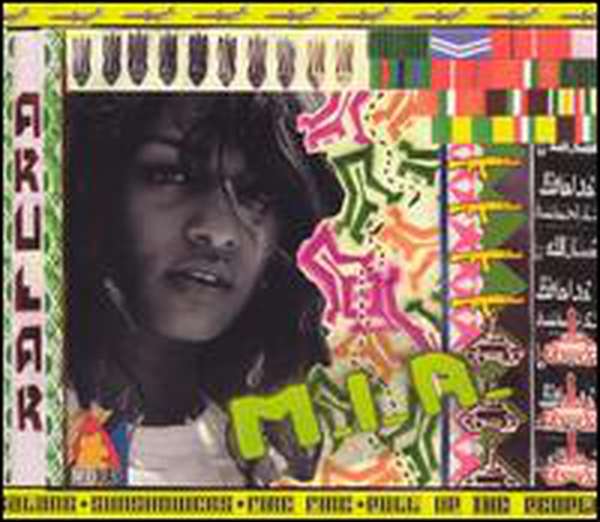Superfluous. If I could describe the music press' fawning over female Sri-Lankan/British emcee M.I.A. in a single word, that would be it. This excessive praise for a new artist is not unique to her, of course. In 2004, it was Franz Ferdinand. In 2003, it was the Yeah Yeah Yeahs. To be honest, M.I.A.'s Arular does not live up to the hype, but what album possibly could?
I'm going to be overly-simplistic and superficial and use Dizzee Rascal as a reference point for what M.I.A. sounds like (because I'm lazy and because M.I.A. doesn't really have a reference point). They're both uniquely British, employ cheap, abrasive beats, and often have as much in common with the electronica scene as they do the hip-hop scene (indeed, the Tower Records in Nashville places both of the artists in the "Dance" section as opposed to the "Rap" section although a case could be made for both genres). That's where the similarities end.
While Dizzee Rascal's delivery should be the envy of many an American rapper, M.I.A. will most likely never go down in history next to Nas and Rakim in the Rap Hall of Fame. However, her sing-songy rap style services these songs well and she provides a great deal of variety with her voice.
Also, while neither Dizzee's nor M.I.A.'s beats could ever be described as "polished", there is a difference. Dizzee's beats sound like the bastard love child of Mario (of Nintendo fame) and Aphex Twin, while M.I.A.'s are more overtly "World"-influenced and much more dance-oriented. In fact, it's not hard to imagine indie-kids ditching their Faint records and putting Arular on for a change of pace from the current disco-beat craze.
One thing Arular has that Dizzee occasionally lacks is an abundance of those ever-important hooks. Try listening to it and not having "Galang," "Bingo," or "Sunshowers" on repeat-play in your mind for the next couple days. Many of these songs are simply infectious.
That being said, Arular suffers from the same problem that many unique, one-of-a-kind artist debuts suffer from: as a collection, many of these songs sound too much alike (see also: TV on the Radio's "Desperate Youth, Blood Thirsty Babes"). Several songs employ similar-sounding beats, causing some of the tunes to sort-of run together post-listen.
Arular is a dazzlingly unique record in that it melds hooks, dance-floor stompers, and lyrics gleaned from M.I.A.'s fascinating upbringing (her father apparently has ties to the Tamil Tigers). Hopefully, M.I.A.'s sophomore effort will continue on the outsider path she has taken while simultaneously pushing the boundaries of her music with more variety. And hopefully, the music press won't viciously attack her for changing her sound like they have for so many of her over-praised predecessors.



